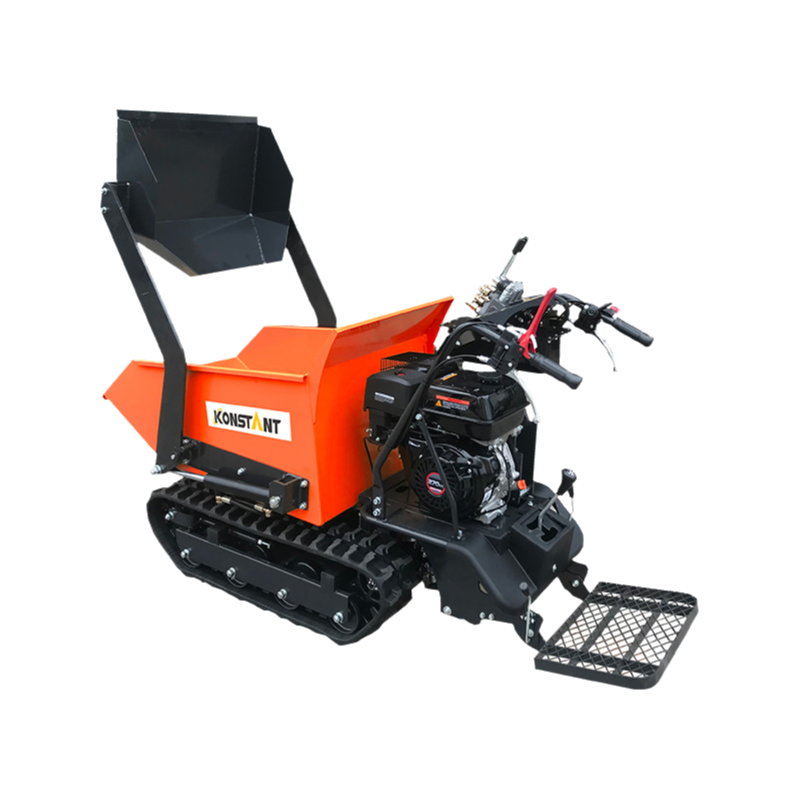Provide you with the latest enterprise and industry news
Home / News / Industry news / Electric Mini Dumper Manufacturers Lead Construction Industry's Green Revolution
Electric Mini Dumper Manufacturers Lead Construction Industry's Green Revolution
Update:16-05-2025
Posted by Admin
The construction equipment industry is witnessing a significant transformation as innovative electric solutions reshape material handling capabilities across multiple sectors. These developments are revolutionizing operations throughout construction, landscaping, and agricultural applications.
Recent technological breakthroughs have introduced advanced battery systems that provide extended operational times while maintaining consistent performance. These improvements particularly benefit projects requiring sustained operation in environmentally sensitive areas.
Engineering innovations have resulted in enhanced power management systems that optimize energy utilization while ensuring reliable performance. These advancements have proven especially valuable in applications where noise reduction and zero emissions are crucial.
Industry professionals note that recent design improvements have focused on maneuverability enhancement, allowing better access in confined spaces. This improved mobility has become increasingly important in urban construction and renovation projects.
Construction sites worldwide are embracing new-generation electric equipment that demonstrates improved stability and operational reliability. These machines feature advanced components that extend service intervals while maintaining consistent performance under challenging conditions.
Environmental considerations have driven recent innovations, with designs focusing on sustainable operation and reduced carbon footprint. This eco-conscious approach aligns with global construction trends toward environmentally responsible practices.
The integration of smart control systems enables operators to monitor and adjust performance parameters in real-time, ensuring efficiency and preventing potential issues. This predictive capability has revolutionized maintenance scheduling and reduced unexpected downtime.
Safety features have evolved to include improved stability systems and advanced operator protection mechanisms, enhancing workplace safety and operator confidence. These advances have made material handling operations more reliable and secure.
Research continues in the development of innovative power systems that could further improve performance and versatility. These ongoing efforts suggest promising developments in electric construction equipment for future applications.
The technology's adoption in emerging markets has grown significantly, driven by increasing demand for sustainable construction solutions. This global expansion has contributed to continuous refinement in design and functionality, benefiting contractors worldwide.
Maintenance procedures have been simplified through modular designs and improved access to critical components. This evolution in serviceability has reduced maintenance time and extended operational life spans.
Looking ahead, industry experts anticipate continued innovation focusing on enhanced automation capabilities and improved integration with digital construction systems. These developments are expected to further optimize construction operations and improve efficiency.
The versatility of modern systems has expanded their application across different industries, from indoor renovation to outdoor landscaping. This adaptability has made the technology essential in various construction processes requiring precise material handling.
Charging infrastructure has seen significant advancement, with new quick-charging technologies enabling extended operation in demanding environments. These improvements have contributed to increased reliability and reduced operational downtime.
The integration of advanced materials has enabled more robust construction while maintaining lightweight characteristics. This enhanced design approach has become crucial in maintaining maneuverability across various applications.
The impact of these technological advances extends beyond immediate operational benefits, contributing to overall construction excellence and environmental sustainability. As the industry continues to evolve, these innovations remain crucial in modern construction processes.


 English
English русский
русский Français
Français Español
Español Deutsch
Deutsch















